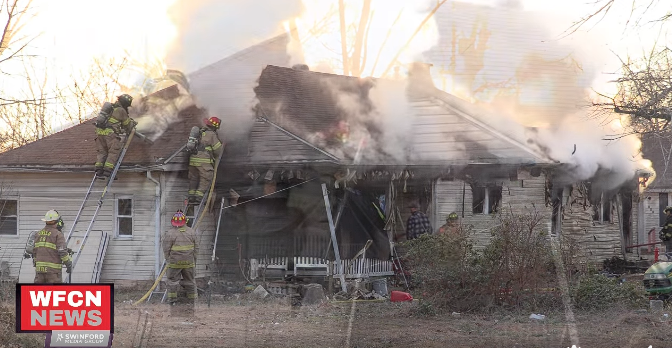Poplar Bluff students convert five-speed truck to electric vehicle
POPLAR BLUFF, Mo. (KBSI) – Some students at Poplar Bluff Technical Career Center converted a five-speed truck into an electric vehicle.
The automotive technology class at the Poplar Bluff Technical Career Center recently completed the electric vehicle conversion of a five-speed truck, a campus-wide project a couple of years in the works.
“This is where the industry is going; like it or not, they’re gonna be driving electric cars. They’re on the streets. They’re in the shops. Someone at a dealership is working on one right now. They come out here recruiting,” said instructor Steven Layman, the TCC’s 2022 Teacher of the Year. “If the students can work on it, they’re gonna make substantially more over people who are just doing the oil change stuff that will start disappearing.”
Layman is a master certified technician through the National Institute for Automotive Service Excellence. He took over the automotive technology program four years ago.
The class acquired the conversion kit via a $7,500 Vocational-Technical Education Enhancement grant along with a $3,500 match from the district during the 2020/21 school year, according to TCC Director Charles Kinsey.
“During his first year we had an extensive conversation about the future of the automotive industry,” said Kinsey. “We built something to allow students to basically see how it’s done one way, showing how the parts interact – from a combustion engine to an electric driven system.”
It took until around Christmas break of this school year for the Chevrolet S-10 to be drivable, complete with seatbelts and license plates due to shipment delays created by the global pandemic.
Layman hopes to display the vehicle in car shows beginning this summer, as a way to promote Poplar Bluff TCC.
“We practiced on these little electrical kits from Amazon, and one of the rewarding moments was when we powered up the ignition after we worked up the last relay, and a student said, ‘This isn’t any harder than the kits,’” Layman said. “It’s all done one circuit at a time, using hundreds of wires, breaking every system down step by step. Then all of a sudden you’re done, and it doesn’t seem as scary.”
The Chevy pickup has 12 deep cycle batteries pumping out 144 volts total, in order to save money over lithium. Another alternative option would have been to pay about $35,000 for what Layman compared to a large go-kart through a company that manufactures an inclusive training system for students.
The custom truck should be able to drive 70 miles per hour for up to 100 miles. Though it has mainly been tested across campus or in town.
Layman says most every class that could help, helped.
The project was coordinated among the auto collision, building trades, computer science, HVAC-R and welding classes.
It included a coat of paint around the wheels, wooden panels assembled for the electronics later wrapped with ductwork, 3D printed emblems and bezels, the tilt bed lift secured in place and battery boxes fabricated.
The computer graphics and print technology class made a trade with Bluff Signs to service a machine for the business in exchange for otherwise unavailable materials to wrap the truck.
Layman says students installed the electric motor using their own wooden mockup. Then, Heartland Tool Works was able to replicate using the precise measurements of the engine block from General Motors.
“Electric work is profitable and I try to stress that end because I think it will benefit them, especially in the future,” said Layman. “We don’t know what the future is gonna bring, but we do know whatever’s coming is gonna be heavily computer-controlled, so the more they get involved, the better off they’ll be – if I can get them going on the right path.”


